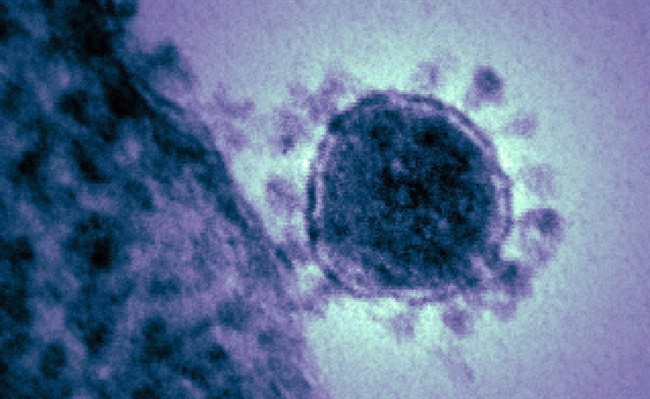Authorities in Saudi Arabia are seeking outside expertise to help with an outbreak of the new coronavirus in the eastern Saudi city of al Hofuf.

And a source has revealed that Toronto SARS expert Dr. Allison McGeer is among the scientists who are travelling to Saudi Arabia at the request of the kingdom’s government.
A spokesperson for the World Health Organization says two people from the global health agency are also travelling to Saudi Arabia to consult on the outbreak, which appears to have involved spread of the new virus among patients in hospitals in the city.
Gregory Hartl won’t reveal the names of the WHO staff who are going, but says they will advise the ministry of health.
Saudi Arabia announced last week that it had confirmed a group of seven new cases of infection with the virus in al Hofuf, five of whom were already dead. At least some of the cases were receiving care in a dialysis clinic at Al-Moosa Hospital.
In the days that followed, the numbers climbed to 13 cases and seven deaths, making it the largest cluster of infections with the new virus to date.
The WHO says at least two of the infections involved family members of a dialysis patient, suggesting person-to-person spread may have occurred there. There has been at least one other situation in which the virus is known to have been transmitted person to person, and several other clusters of cases where this type of spread is suspected.
McGeer was not immediately available for comment on the role she might play in the investigation.
She is head of infection control at Toronto’s Mount Sinai Hospital, and was heavily involved in the response to the city’s large SARS outbreak in 2003. In fact, she contracted SARS during the early part of the four-month outbreak.
The new coronavirus is from the same virus family as SARS, and seems to cause even more severe disease than the SARS virus did. Since it was first spotted last year, 31 people have been confirmed as having been infected and 18 of them have died.
The most recent case was announced today, in France. Authorities there revealed the man had returned ill from a trip to the United Arab Emirates and has been in a hospital in Douai in northern France since April 23.
The majority of cases – 23, with 14 deaths – have been reported by Saudi Arabia. The WHO considers a man who lived in Britain but who fell ill while travelling in Saudi Arabia a Saudi case.
But infections have also emerged from Jordan, Qatar and the U.A.E. Britain, German and now France have also seen cases, but they have been in people who either contracted the virus while travelling in the Middle East or who were transferred for care to European hospitals by air ambulance. Two people contracted the virus in Britain, but they were family members of the man who got sick in Saudi Arabia.
Though the existence of the new virus was first discovered late last June, it is still not known how people are becoming infected. The genetic sequence of the virus suggests it probably originated in bats. But it is not clear how a bat virus is infecting people. Nor is it known what kinds of studies affected countries are doing to try to find the source of the virus.
The Public Health Agency of Canada is also helping in the response to the coronavirus. Spokesperson Stephane Shank says two of the agency’s staff are part of an informal working group of technical experts that the WHO has drawn together to advise it on the new coronavirus.
– with files from The Associated Press



Comments